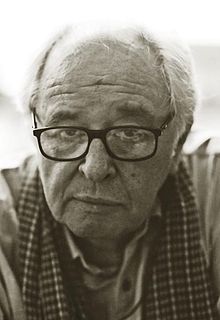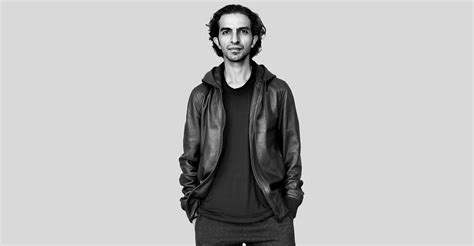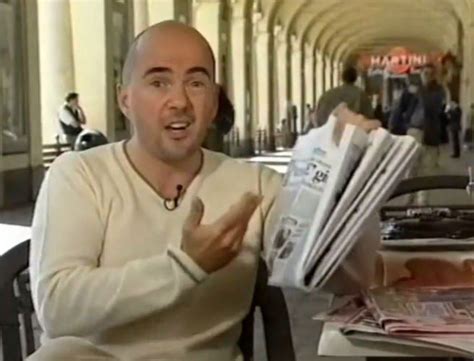A Quote by Philip Jones Griffiths
[Photojournalism] really is the only branch of photography that's a credit to our profession. We see, we understand; we see more, we understand more.
Quote Topics
Related Quotes
I believe that nothing can be more abstract, more unreal, than what we actually see. We know that all we can see of the objective world, as human beings, never really exists as we see and understand it. Matter exists, of course, but has no intrinsic meaning of its own, such as the meanings that we attach to it. We can know only that a cup is a cup, that a tree is a tree.
You know, there was a recent poll which said that young people in the generation of the students here felt it was far more likely that they would see a UFO than that they would draw Social Security... It's very important you understand this. Once you understand this, you realize this is not an episode from the X Files, and you're not more likely to see a UFO if you do certain specific things.
I didn't do well in high school, but I took photography, and I loved being able to capture moments. It led to more and more photography, and fashion was the angle into photography for me. It was incredible to see photographs by Irving Penn or Helmut Newton. I was really intrigued by that, and that's what led me to New York City.
Digital has really made the fashion industry a lot more transparent. So people can see and understand how the industry really works, and participate in an industry that was very inaccessible to people. The only thing that people used to see before was the end product. Anyone can participate in it now.
I have found that the many imbalances within our individual lives result in an overall more worldly balance. What I mean is that no matter how unfair I think something is, I need only look at the bigger picture to see how, in a way, it fits... however impossible it is to understand it or see it at the time.
Every time you show something to somebody they're going in one direction, when they see that thing you did they're going to go off track - maybe towards a direction that you think is more important. They'll be more discerning, they'll probably see things a little bit more profoundly, they'll spend more time trying to understand what's in front of them.
Photojournalism is photography with more story telling. A single image can be amazing and dramatic. I started out shooting individual images, but I found I wanted to have more of a voice: to actually say something. I wanted to do something more personal over a long period of time, with more authorship.

































